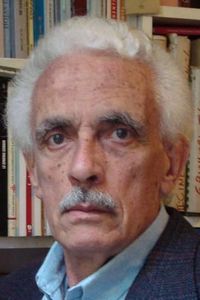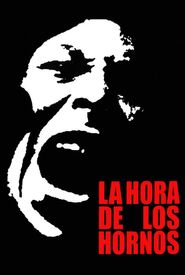Octavio Getino, a visionary filmmaker who left an indelible mark on the cinematic world, was born in the historic city of Leon, Spain, where the seeds of his creative journey were first sown. However, it was his bold decision to relocate to Argentina in the early 1950s that served as the catalyst for his artistic odyssey, setting him on a path that would ultimately lead to a legacy of groundbreaking films that would captivate audiences worldwide.
The dynamic partnership of Getino and Solanas, two pioneers in the realm of cinema, embarked upon an extraordinary collaborative endeavour, resulting in the profoundly influential film "The Hour of the Furnaces". This groundbreaking project, characterized by its bold and unconventional approach, was largely shot in secrecy, often in underground locations, as a deliberate attempt to evade the repressive grasp of the authorities, who sought to stifle creative expression and maintain a stranglehold on artistic freedom.
Octavio Getino's life took an unforeseen turn in the mid-1970s, as the remarkable political resurgence of Juan Perón had a profound and lasting impact on his personal and professional trajectory. The newly appointed film censor in Argentina, Getino found himself at the helm of a crucial institution, tasked with the weighty responsibility of regulating the country's cinematic output.
The sudden and unforeseen twist of circumstances presented Getino with an extraordinary and unprecedented chance to alleviate the oppressive and restrictive artistic constraints that had previously stifled and suffocated creative expression, thereby offering a newfound sense of artistic freedom and liberation.
As a consequence of his appointment as film censor, a pivotal moment in the evolution of cinematic expression emerged, characterized by a significant shift towards a more liberalized atmosphere, which in turn, facilitated the unhindered creative growth and flourishing of filmmakers, as he endeavored to usher in an era of artistic liberation.
Despite his initial influence and prominence in the position, Getino's tenure was ultimately marked by a sudden and unexpected shift in power dynamics, as he was abruptly replaced by a more authoritarian figure, thereby signaling a stark departure from the relative openness and freedom that had previously characterized the censorship regime.
Throughout his journey, Getino's unwavering dedication to his craft was constantly put to the test, yet he persevered, fueled by an unrelenting passion for the art of filmmaking.
Undeterred by the hurdles that lay before him, Getino made the courageous decision to uproot his life and relocate to Peru, a bold move that would ultimately prove to be a pivotal turning point in his career.
As he settled into his new surroundings, Getino seized the opportunity to share his vast knowledge of film theory with a new generation of aspiring filmmakers, taking on a teaching position that allowed him to not only impart his expertise but also to inspire and educate.
Through his tireless efforts, Getino played a vital role in shaping the next wave of Peruvian filmmakers, leaving a lasting impact on the country's cinematic landscape.
As he looked out upon the landscape of his new home, Getino's vision for a brighter future was clear, a future that would be illuminated by the creative spark of his students, and fueled by his own unwavering commitment to the art of filmmaking.
As Getino embarked on this pivotal juncture in his existence, he became ensnared in a labyrinthine tapestry of politics and subterfuge, with Argentine authorities exerting immense pressure to repatriate him to his native land, where he would be confronted with the far-reaching repercussions of his past decisions.
As the specter of extradition loomed large, Getino refused to be deterred, his unrelenting enthusiasm for the art of filmmaking serving as the driving force behind his unyielding pursuit of creative expression and his unshakeable determination to share his singular perspective and artistic vision with the global community.
In the transformative decade of the 1980s, Getino made the audacious and courageous decision to relocate to Mexico, a country steeped in rich cultural heritage and cinematic tradition, where he would proceed to leave an indelible mark on the nation's thriving film industry, infusing it with his groundbreaking creative vision and unwavering commitment to artistic excellence.
Margaret Mazzantini:
Born on September 26, 1958, in Rome, Italy, Margaret Mazzantini is an Italian actress, writer, and director who has made a significant impact in the world of cinema.
Prolonged throughout his illustrious profession, Getino's resolute dedication to his artistic endeavors has been a hallmark of his unwavering determination and an unrelenting ardor for the cinematic medium, with his unshakeable resolve and unyielding passion for film persistently serving as a beacon of inspiration and a testament to his unyielding commitment to his craft.














